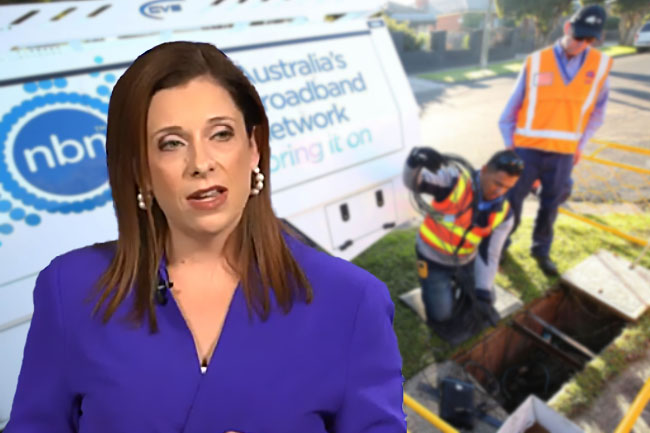The Murdoch stranglehold over Australian media was, as ever, a popular topic on IA during 2020, with this February glimmer of hope from Paul Budde receiving nearly 40,000 unique views.
*****
Foxtel is reaching a threshold where it will have to decide if it wants to continue its proprietary pay-TV service, writes Paul Budde.
BACK IN the early 2000s when the apartment complex where we are currently living was built, Telstra installed a coax cable in the complex together with the ordinary copper cable. The Hybrid Fibre Coax (HFC) cable allowed Telstra to offer better broadband services and Foxtel to deliver its proprietary pay-TV service. There is now turmoil in the complex as Foxtel has indicated it will discontinue the HFC infrastructure and replace it with satellite infrastructure. I would argue against this.
Foxtel wants to charge the body corporates for its decision to move to satellite dishes on the four buildings involved, which will cost close to $25,000.
For a range of reasons, Foxtel never took off in Australia. It predicted a 75% penetration by 2000, however, at its peak, it has never exceeded the 30-35% mark. Best indications are it currently stands just below 25%. The company has basically stopped investing in the dying pay-TV business and is concentrating its investment on new ways of delivering its content services.
The world is moving away from proprietary pay-TV services as new technologies are making such services obsolete. Internet-based broadband streaming services operate on an open system and there is, therefore, more competition. This means more innovation, more choice and lower prices.
Foxtel is trying to move the service to new technologies such as streaming video on demand (SVOD). It knows that the proprietary pay-TV service is facing a slow death. However, there is stiff competition in this market from other players such as Netflix, Disney, Amazon, Optus and Fetch. Foxtel no longer has a monopoly and is finding it difficult to operate in a more competitive market. The decline in traditional pay-TV (or cable TV) is not unique to Australia. Such services are also struggling in North America and Europe. With access to modern technologies, the distribution of content via broadcasted pay-TV has become inefficient and very costly.
In its ’Video Entertainment Market Outlook' report, research company Venture Insights predicts a 5.1% fall in compound annual growth rate for Australia’s pay-TV sector through to 2023. It tips SVOD revenues to rise by more than 12%, led by market leader Netflix.
While Foxtel is moving into SVOD, the research company isn’t convinced the strategy will work:
'We note the risk of Foxtel reaching a tipping point if its foray into the SVOD space fails to take off, and therefore expect a steeper drop off in revenues from 2021-22 onwards.'
The report adds:
'Foxtel faces the risk of cannibalisation of its existing high ARPU [average revenue per user] customer base and coupled with high fixed sports programming costs, Foxtel will remain under pressure.'
As their revenues are under pressure, Foxtel has had to sack staff.
The SVOD segment of the market is also the only one that is seeing growth in advertising revenue, with pay-TV and traditional broadcasting seeing a slow decline.
Foxtel's offering in the SVOD market is very confusing with different services such as Foxtel Now, Kayo and different set-top boxes and pay-TV services over HFC and satellite infrastructure. All have different prices so very few people have a good understanding of what to choose from Foxtel.
Telstra is still a 35% shareholder in Foxtel but was never really interested in supporting the service. Their investment was purely defensive, aimed at stopping News Corp from entering their turf: the broadband market. Telstra won that game and are no longer interested in investing in the service or supporting it financially.
The banks are also abandoning the company — unwilling to refinance its $1.5 billion debt. Foxtel has since received some reprieve in the form of a $200 million loan from South Korea’s Hana Financial Investment Co Ltd. For the rest, News Corp will have to cover the difference.
The pay-TV service has now also lost the rugby broadcasting rights as they have been unable to strike a new deal with Rugby Australia. A couple of years ago, they also lost the broadcasting rights for the English Premier League to Optus. There is a good chance that the rugby service will also now go to a streaming service — perhaps Optus?
Just last week, the company reported a 10% drop in Kayo subscribers; this at a time that other SVOD services are seeing increases in their subscriber numbers.
So, my advice to the body corporates has been to not rush and start installing expensive new satellite-based infrastructure and locking them into potentially obsolete technology. Foxtel is not going to discontinue the HFC service for another three years, so there is no need for hasty decisions.
By that time, we will have a much better indication about the future of the Foxtel pay-TV service and further developments on new technologies that will allow for further increased quality of the FttB infrastructure that is available in our buildings.
The future of broadband infrastructure is far more secure, as the telecoms industry – led by the NBN company – will start spending billions of dollars upgrading its infrastructure eventually to gigabit speeds. This will start after the completion of the initial roll out later this year.
Foxtel is reaching a threshold where it will have to decide if it wants to continue its proprietary pay-TV service. With declining revenues and fewer sports services, it will be interesting to see when News Corp will finally pull the plug.
Paul Budde is an Independent Australia columnist and managing director of Paul Budde Consulting, an independent telecommunications research and consultancy organisation. You can follow Paul on Twitter @PaulBudde.
 This work is licensed under a Creative Commons Attribution-NonCommercial-NoDerivs 3.0 Australia License
This work is licensed under a Creative Commons Attribution-NonCommercial-NoDerivs 3.0 Australia License
Support independent journalism Subscribe to IA.












